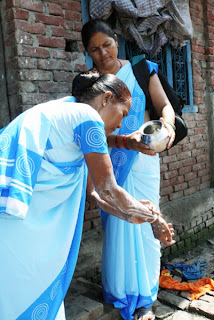4.3K
The Female Community Health Volunteer (FCHV) Programme IN Nepal was started in 1988 by the Ministry of Health and Population in order to improve community participation and to enhance the outreach of health services through local women working voluntarily. Initially the strategy proposed one FCHV per ward in rural areas.
In the mid-1990s a “population based” strategy was adopted in 28 districts whereby additional FCHVs were recruited leading to a current total of nearly 50,000 FCHVs in Nepal and 97 % of them are in are in the rural areas.
FCHVs play an important role in contributing to a variety of key public health programs, including family planning, maternal care, child health, vitamin A supplementation/ de-worming and immunization coverage. They are the foundation of Nepal’s community-based primary health care system and are the key referral link between the health services and communities. Additionally FCHVs have made significant contributions to women’s leadership and empowerment at the Village Development Committee (VDC) level, and several active FCHVs are as VDC members.
Given that majority of health problems in Nepal, particularly in the rural communities, are related to the health of women and children coupled with a lack of human resources in the health sector, FCHVs will be a major contributory factor for Nepal to achieve its health related Millennium Goals (4, 5 and 6). Therefore, this paper summarizes the role of FCHVs, the government policy with regards to them and how the programme could be further strengthened to help the health sector utilise their skills to reach its targets. The effective implementation of FCHV program depends largely on support provided by the community, the Health System, and the mass media.
The role of the FCHVs has been outlined as below;
– To act as voluntary health educators and promoters, community mobilizers, referral agents and community based service providers in areas of health as per the trainings received.
– To promote the utilization of available health services and the adoption of preventive health practices among community members. Female Community Health Volunteers
– To play a supportive role in linking the community with available PHC services and to continue to play an important role related to family planning, maternal/neonatal health, child health and select infectious diseases at the community level.
source: WHO
previous post



